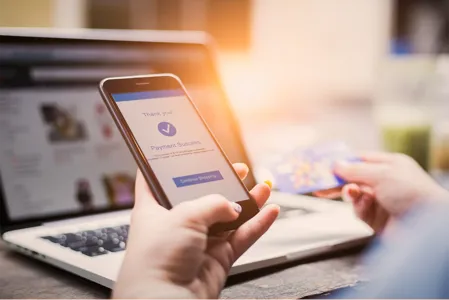
Banking online has never been easier. It’s a convenient way to check your balance, make payments, transfer money, and manage your finances. But just like with anything online, there are risks – including having your account hacked, your personal information stolen, or your hard-earned money taken straight from your account.
BCU Bank has a range of security measures to help keep members safe, but you also have a role to play.
1. Use a strong password
Your best protection for online banking is a strong password. Don’t use your own name, a child’s name, your street name or anything else that could be easily determined by someone else.
Instead, create a password that includes a good mix of upper and lower-case letters, numbers and special characters. Make sure to put a strong passcode or password on the devices your online bank account is connected to, such as your banking app on a smartphone or the laptop you use to access your account.
Also, never use an identifiable number like your birthday, postcode or another significant number for your PIN.
2. Add two-factor authentication
If your bank or digital payment provider offers two-factor authentication, consider setting it up as an added layer of protection. This is the process where, after you enter your login details, your bank will send a code to your nominated mobile number or email address, which you then enter to access your account.
BCU uses Visa Secure and other security codes to provide a second layer of security and make it harder for someone else to login and access your account without the unique code. You can set up two-factor authentication in BCU iBank.
3. Understand how your bank communicates with you
We receive many emails and messages every day, but not all are genuine. Scam bank emails can look very convincing and seem like they’re legitimate, which is why you need to be careful with any communications.
One of the best ways to arm yourself against being scammed is to understand how your bank communicates with you. BCU will never ask you for your BCU iBank password, whether that’s via email or over the phone. If you ever receive a communication from BCU you’re uncertain about, contact us directly.
4. Only use secure devices
Using public computers or even public Wi-Fi on your own devices can increase the risk of someone else being able to access your bank information. Always use a secure device, such as your own computer or smartphone, to access your online banking. Only do it when you're on a secure internet connection, whether that’s your own home Wi-Fi or that of a trusted family member or friend.
5. Make the most of your bank’s safety features
Your bank is there to help keep your money safe, and many financial institutions offer additional safety features to ensure only you can access your account. Chat to your bank about what they offer to help secure your account.
If you have a BCU account, you can set up a daily transaction limit in the BCU Bank app or BCU iBank, so large amounts can’t be taken without your approval.
If you notice an unauthorised transaction or suspect someone else can access your accounts, please contact us as soon as possible. Find out more about BCU’s security measures.